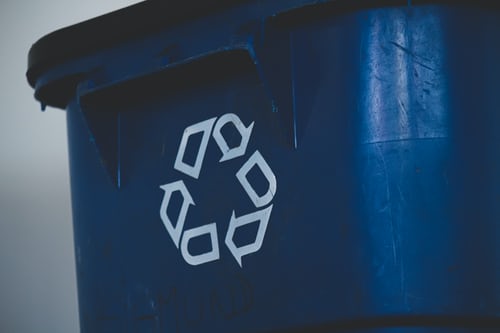What Do You Need to Know About Metal Recycling and Recent Industry Trends?
Metal recycling is not a new concept, but growing concerns about climate change have made it even more important to focus on cutting-edge recycling technologies. Recycling has many environmental benefits as it helps reduce metal waste, save energy, and cut down emissions.
Metal waste contributes to around 30 percent of the solid waste every year. This figure presses on the urgency to manage metal waste. Currently, only 30 percent of the used metals are recycled, but this number is going to increase with stringent government laws to tackle global warming. You can learn about the current measures taken by the government on recycling news.
The metal recycling process is complex, needing advanced processing techniques. However, companies are actively investing in the metal recycling industry, considering the energy conservation, sustainability, and environmental benefits.
Essentially, all metals fall under two categories: ferrous and non-ferrous. Ferrous metals primarily comprise steel and iron. It is estimated that ferrous metals account for a greater share in the recycling industry. The non-ferrous side includes metals such as aluminum, copper, zinc, etc.
Steel And Iron
Steel and iron are the most recycled metals on earth, and this is essential because they are the easiest metals to reprocess. Steel is an iron alloy including carbon, iron, and tin.
Due to the inherent magnetic quality, they are very easy to recycle. Steel is recycled more than aluminum, glass, plastic, and paper combined. The inherent durability and recyclability make them crucial for modern society. Steel can be 100 percent recycled without losing its quality, no matter what form it takes.
This quality naturally makes it popular for recycling. When recycled, it can save 1.5 tons of new iron ore in addition to half a ton of coal and several tons of water. Recycling also makes up additional space in the landfill.
Aluminum
Aluminum is another one of the most recycled metals today. It can be recycled into the same form over and over again. Within the industry, aluminum automotive parts and building materials are recycled for end-use.
Mining bauxite ore and transforming it into aluminum is an energy-intensive task and highly damaging to the environment. Recycling saves about 90 percent of the energy that’s required to make new aluminum.
Copper
Copper and copper alloys have been recycled for many years. It is used to make wires, plumbing tubes, heat exchangers, roofing sheets, and more. Interestingly, copper from your smartphone can be used in making your air conditioner.
Recycled copper requires 85 to 90% less energy than processing new copper from virgin ore. Most of the copper requirements are being met by metal recycling.
Zinc
Not many know that zinc is recyclable, but it is inherently a recyclable material that can survive without losing its physical and chemical properties. Because of this, it is an upcoming candidate for recycled metal. At present, about 30% of zinc is recycled, while 70% is mined.
Recent Trends In Metals Recycling
Increased Use of Recycled Metals
Steel and iron are deployed in automobiles, locomotives, ships, and construction materials. To create a balance between the supply-demand chain, ferrous metal suppliers and product manufacturers, primarily the steel manufacturing companies, are making scrap metal processing a vital part of their production chain.
There is a shifting trend towards the increasing use of recycled metals to balance raw materials and investment.
Involvement Of Local Communities
Many consumer programs and municipal corporations are involved in the recycling of aluminum containers and packaging. The most recycled things are beverage cans, aluminum baking trays, aluminum foil, and pie pans. According to the Aluminum Association, Americans spend more than $700 million worth of beverage cans in landfills each year.
Companies Expanding Regional Reach
To tap the business opportunities associated with the ever-growing recycled metal market, many companies are working on expanding their regional reach. They are working on setting up recycling facilities capable of processing complex non-ferrous and precious metals that are difficult to recycle.
They are planning to offer innovative recycling solutions to their customers. The latest recycling news actively covers steps like these.
Reduced Human Intervention
The next-generation recycling facilities are emphasizing on less human intervention. Long-term exposure to heavy metals and chemicals can be hazardous. With minimized human intervention, the safety of the people working in the recycling facilities can be ensured.
Recycling helps curb the increasing demand for metals and promotes sustainability and the availability of useful metals for generations to come. As these metals are non-renewable and of limited quality, it is paramount to encourage recycling.
Most of the metals can be fully recycled and used without losing their integrity. Therefore, processing the metals correctly gives the advantage to use these metals till the end-use.

